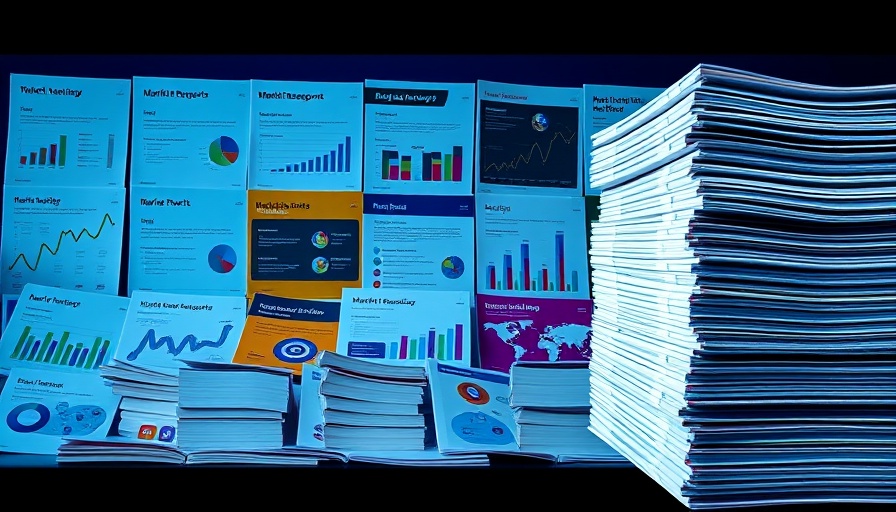
The Transformative Economic Impact of AI in Tourism
The rapid adoption of Artificial Intelligence (AI) in the tourism sector is not just a technological advancement; it's a catalyst reshaping global trade dynamics and customer experiences. This evolution is deep-rooted in the industry's demand for personalization, operational efficiency, and customer engagement. As travelers increasingly seek tailored experiences, AI is set to enhance the way businesses operate—from optimizing travel planning to delivering superior service.
AI’s Role in Enhancing Customer Experiences
AI-driven technologies such as chatbots, recommendation engines, and predictive analytics are revolutionizing the tourism landscape. Imagine planning your vacation without the hassle of extensive research; AI makes this a reality. Companies like Trip.com have launched advanced AI travel assistants that generate personalized itineraries within minutes. This transformation signals a shift towards hyper-personalization, potentially redefining what travelers can expect from their experiences.
Using machine learning algorithms, AI can analyze vast data sets to understand customer preferences, thereby providing personalized recommendations. This capability helps not only to tailor experiences but also to enhance customer satisfaction and loyalty. With travel volumes rebounding—especially in regions like China, where outbound travel surged by over 800%—the need for advanced AI solutions has never been more critical.
The Economic Implications of AI in Tourism
According to recent research, AI could unlock $2 trillion to $4 trillion in annual value across various sectors, with tourism being a significant contributor to this potential. Economic benefits extend beyond just improved customer service; AI can optimize operational efficiency, enabling businesses to adjust pricing dynamically based on real-time demand analysis. This is particularly relevant as companies strive to boost revenue while ensuring sustainability in an industry marked by significant resource use.
The implications for global trade are profound. As AI continues to shape how travel agencies, airlines, and hospitality sectors function, the competitive landscape is evolving. Major players, including multinational corporations like Google and IBM, are investing heavily in AI technologies, further solidifying their presence in the market while enhancing operational frameworks to respond to evolving traveler needs.
Challenges and Opportunities Ahead
While the opportunities presented by AI in tourism are vast, the industry also faces significant challenges. Legacy systems and outdated infrastructure often hinder seamless integration, leading to vulnerabilities that can disrupt service. For example, disruptions caused by a major IT outage at airlines have highlighted the need for robust technological frameworks that can withstand new AI applications.
Yet, this challenge presents an opportunity for innovation. As travel businesses seek to modernize, there is a burgeoning demand for AI specialists, data analysts, and experience designers who can create systems capable of supporting this new wave of technology. The blending of AI capabilities with human expertise will be integral to enhancing traveler experiences while ensuring data privacy and security.
The Future of AI in the Tourism Sector
Looking ahead, AI's integration into tourism will likely lead to the emergence of new trends, such as virtual reality (VR) experiences allowing travelers to explore destinations from home. Other innovations, such as augmented reality (AR) translation apps, will further break down language barriers, enriching the authentic travel experience.
As the industry adapts to these advancements, travelers can expect even more streamlined services, with AI handling complex queries just as one would chat with a knowledgeable friend. Collaborative efforts among stakeholders—governments, private sector entities, and civil society—are crucial to ensuring responsible development and deployment of AI in tourism.
Conclusion: Embracing the AI Revolution in Travel
The economic prospects tied to AI in tourism signal a transformative era that leverages data-driven insights to redefine customer engagement. By integrating AI technologies, the tourism sector stands to enhance its global footprint while providing richer, more personalized experiences for travelers. As stakeholders commit to innovation and improvements, they are not only catering to modern demands but are cultivating a more sustainable future in tourism.
As we dive deeper into this AI revolution, it’s vital for businesses to embrace these tools not just as a response to consumer demands but as a pathway to long-term growth and resilience in a changing global landscape.
 Add Row
Add Row  Add
Add 




Write A Comment